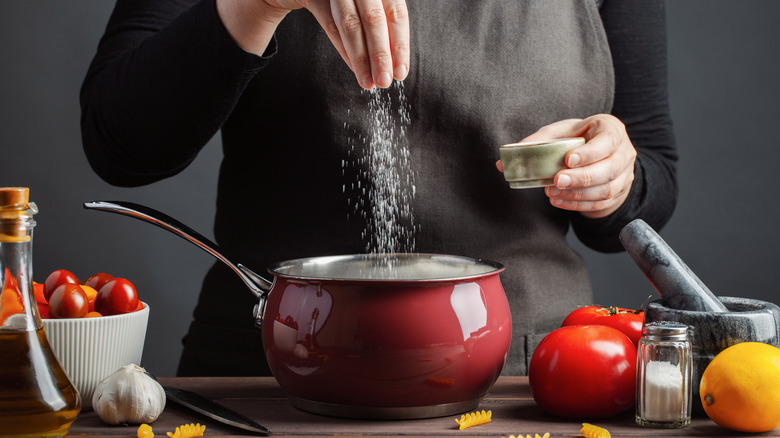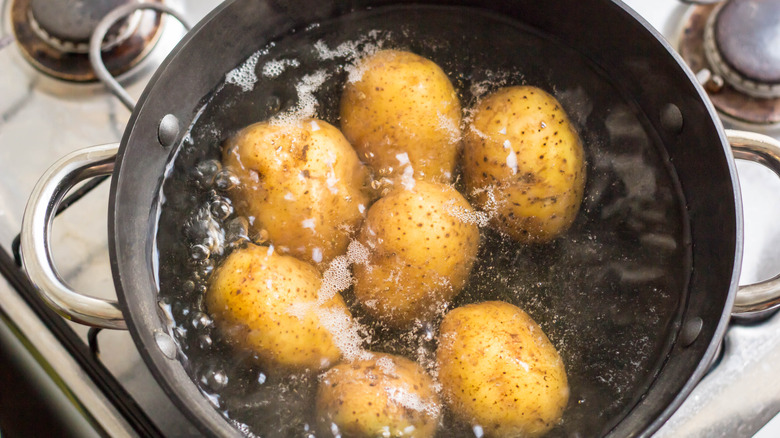The Trick To Knowing How Much Salt You Should Add To Cooking Water
If you have experience cooking pasta, you've probably heard by now that your pasta water should have so much salt, it tastes like the ocean. The reason your pasta water usually needs way more salt than you think is to season the noodles, which is especially important if your sauce doesn't contain much salt. According to America's Test Kitchen, 1 pound of pasta should be cooked in 1 gallon of water with 1 tablespoon of salt, although some may say to make your water even saltier.
But what about when you're cooking other foods? Plenty of ingredients require some time in cooking water, from grains like rice and quinoa, to vegetables like corn and beans. You don't want to under-salt your food, as the seasoning's purpose goes beyond just adding salty flavor — according to Food Hacks, salt enhances the flavor of the other ingredients, while extracting water at the same time. It can also mask unappealing flavors, like bitterness. But of course, you don't want to oversalt your food, as that can ruin a dish completely.
Luckily, there are a few guidelines you can follow to salt your food just right.
Consider the ingredients you're cooking
To determine how much salt you should dump in your cooking water, you'll want to take the food you're making into consideration. According to Bon Appétit, ingredients that absorb water quickly won't take as long to cook, so you can be more generous with your salt. However, foods that sit in the pot for a long time or fully soak up the water, like rice, will absorb a ton of salt if given the opportunity; In this case, you only need to add a little.
But that's not to say you should leave the seasoning out when cooking rice or quinoa — in fact, salt is important when cooking rice as it eliminates the possibility of bland end result. However, you only need 1 teaspoon of salt for every cup of rice and 2 cups of water, according to Foods Guy. In a similar vein, you only need 2 to 3 teaspoons of salt for every pound of dried beans, Kitchn shares, as the beans cook for one to three hours on the stove.
If you're making something like whole potatoes, blanched spinach, or the aforementioned pasta, however, feel free to salt away (via Bon Appétit). These ingredients either won't absorb a lot of water, or are only spending a few minutes in the water — blanched spinach, for example, only boils for one minute, according to Soil Born Farms.

